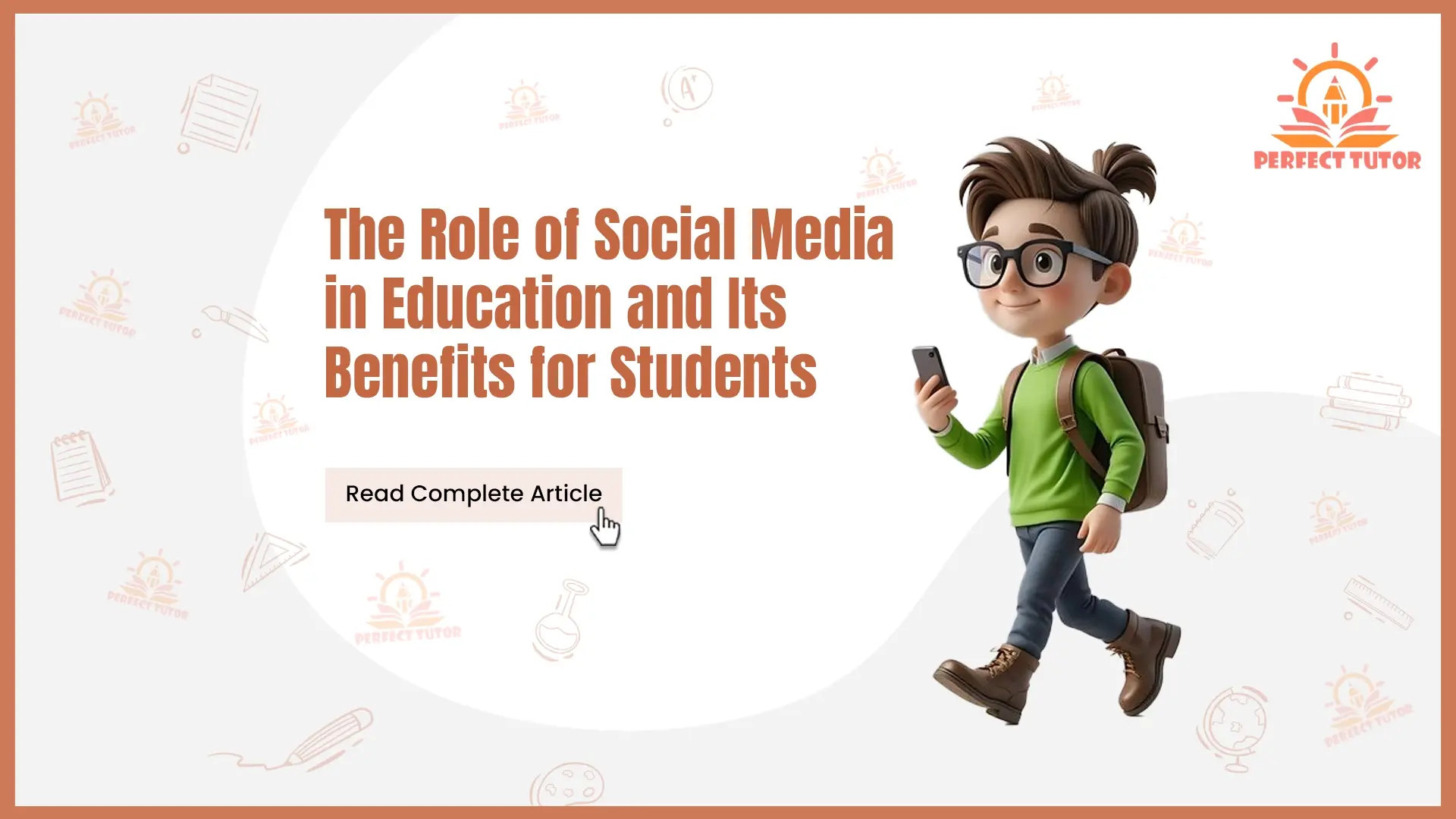The Role of Social Media in Education and Its Benefits for Students
Today, social media is an important part of education. It has changed the way students learn and communicate with each other. In this blog, we will explore the role of social media in education and how platforms such as Facebook, Twitter, and Instagram contribute to the modern learning environment.
You will learn about the various benefits of social media in education, from improving communication to increasing collaboration between students and teachers. We will also discuss how social media helps in improving knowledge, building networks and developing important skills.
By reading this blog, you will understand the benefits of social media in education, how students can use it effectively to boost their learning, and why it is a valuable tool for education in today's world. Whether you are a student, parent, or teacher, this blog will explain practical ways to leverage social media for educational success.
The Role of Social Media in Education
In recent years, social media has evolved from a platform for social interaction to a powerful tool for learning and education. With billions of users worldwide, platforms like Facebook, Instagram, Twitter, and YouTube play an important role in how students find and share information.
How can social media be used in education?
The most important aspect of social media in education is its ability to connect students and teachers, allowing for quick communication and easy access to resources. With just a few clicks, students can share educational content, join study groups, and participate in online discussions.
For teachers, social media is a way to connect with students outside of the classroom. It also gives them tools to make learning more fun and interactive.
Social media helps students learn together. By joining groups and pages focused on different subjects, they can share ideas, work on projects, and help each other understand topics better. This creates a strong sense of community among them. This is very useful for online education, where students don’t have many opportunities to interact with others.
Importance of Social Media for Students
The role of social media in education is very clear as it helps students to stay updated about new teaching methods, study tips, and even job opportunities. By following educational pages or joining groups related to their subjects, students can find useful information that may not be in their regular textbooks.
For students, social media platforms provide access to webinars, e-books, online courses, and expert opinions from across the world. This ensures that learning is not restricted to geographical boundaries. Additionally, social media can provide real-time updates on assignments, important announcements, and course materials, helping students stay organized and updated.
Another key benefit of social media in education is its role in skill development. Many platforms help students improve their writing, research, and critical thinking skills by encouraging them to participate in online debates, discussions, and group projects.
Advantages of Social Media to Students
There are many advantages of social media for education, especially for students:
Access to Information: Students can easily find tutorials, articles, and research papers on the topics they are studying. This wide access to information helps them understand difficult concepts better.
Collaboration: Social media makes it easy for students to collaborate on projects. They can share files, discuss ideas in real-time, and keep track of progress without meeting in person.
Improved Communication: Platforms such as Facebook and WhatsApp allow students to communicate quickly and effectively with teachers and classmates, even outside of school hours.
Real-time Updates: Through social media, students can receive instant updates about deadlines, course changes, or events, ensuring they are always in the know.
Creative Expression: Social media encourages students to express their creativity through blogs, vlogs, photography, and art. This helps to build confidence and develop important communication skills.
Reasons Why Social Media is Useful for Students
There are many reasons why social media is useful for students in today's educational landscape. One main reason is the ease of networking. Students can connect with classmates, teachers, and professionals from around the world. This helps them learn more about different subjects and cultures.
Social media helps students get feedback on their work easily. When they share their assignments or projects online, they can get helpful comments from both their teachers and classmates. Sharing and reviewing each other's work helps create a teamwork-based learning environment that aids student development.
Another reason social media is useful is the ability to follow trends in your field of interest. Students can stay updated about the latest developments in science, technology or any other subject by following the right pages or influencers on platforms like Twitter and LinkedIn.
Read This also :- Education Policy in India: NEP and Its Impact
Impact of Social Media in Education
The impact of social media on education is important and varied. Social media helps students overcome barriers to learning, giving them tools and platforms that were not previously available to them. It offers distance learning opportunities, giving students around the world access to the same resources and expert knowledge.
The use of social media in education has made learning more interactive and fun. Students are not just sitting and listening; they are participating in discussions, sharing ideas and working together on projects through social media. This practical way of learning helps keep students motivated and excited about their studies.
However, it is important to balance the use of social media in education. While it can be a great learning tool, its excessive use can lead to distractions, and it is important for students to learn how to manage their time effectively. Teachers should guide students on how to use social media responsibly and ensure that it complements rather than replaces traditional teaching methods.
How can Social Media be used in Education?
Social media can be used in education in a variety of ways:
Creating Groups and Pages: Teachers and students can create groups on platforms like Facebook to share study materials, discuss topics, and collaborate on projects.
Live Sessions: Platforms like YouTube and Instagram allow teachers to hold live sessions where they can interact with students in real-time. This can be particularly useful for Q&A sessions, tutorials, or guest lectures.
Educational Content: Many teachers use social media to share short, engaging educational videos, infographics, or articles, making learning more fun and accessible.
Online Communities: Students can join online communities focused on specific topics, where they can ask questions, share resources, and learn from others.
Career Guidance: Social media is also important for career education. Websites like LinkedIn give students a chance to connect with professionals in their field, get advice, and find job opportunities.
Conclusion
In conclusion, the role of social media in education cannot be underestimated. It provides students with endless opportunities to learn, collaborate, and grow both academically and personally. By using social media platforms responsibly, students can enhance their learning experience, develop essential skills, and prepare for their future careers.
This blog explores the benefits of social media for education, including improving communication, enhancing collaboration and providing access to a wealth of knowledge. Whether you're a student, teacher, or parent, understanding the importance of social media in education can help make the learning process more effective and engaging for everyone involved.



 +91 8700847275
+91 8700847275
 +1 8009616567
+1 8009616567